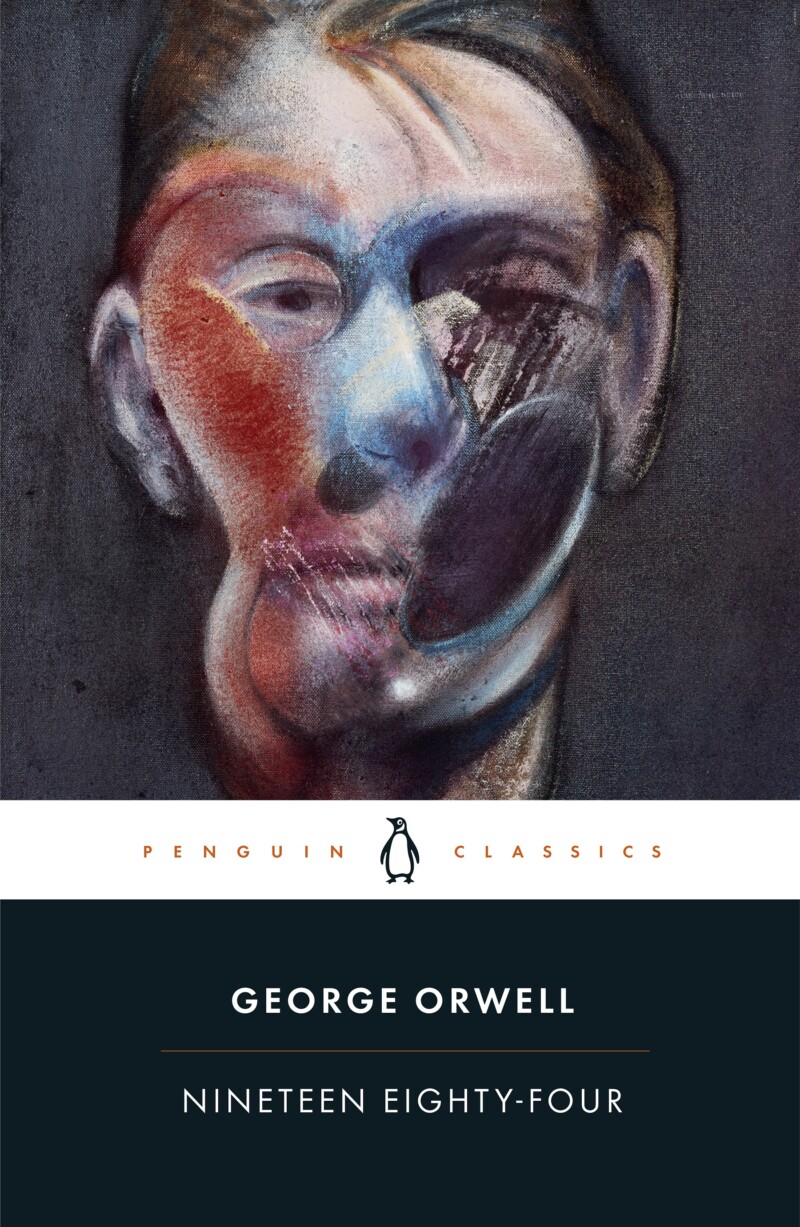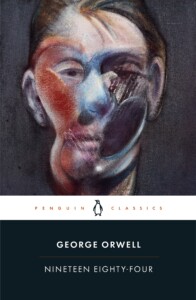Orwell Reflection Isaac Smaldon-Jones

Share this
Orwell famously once said ‘Good prose should be transparent, like a window pane.’
This quote has stuck with me ever since I first saw it, but it wasn’t until I read Nineteen Eighty-Four that I truly internalised it. The prose in his novel could be viewed as plain or uninteresting, but that’s exactly where its excellence lies. Rather than the reader having to decode the words on the page, the prose works with us, and allows us to almost ‘see through’ the book. It takes no effort to be transported into his terrifying world, in spite of its age and antiquated writing style, which could have obfuscated the meaning. Instead, it is one of the few books that I could read for hours on end, which is a testament to its timelessness.
What is beautiful about Orwell’s writing is that his form matches the message of the book. A huge motif in Nineteen Eighty-Four is how information can be manipulated by language. For example, in the story, ‘Newspeak’ is created by the Party in order to curb freedom of thought, by removing the language people need to express themselves. Orwell’s focus on making his prose as accessible as possible is a counter to that idea, despite the fact that it isn’t part of the story itself.
Seeing this marriage of form and function was revolutionary for me, and is something I want to incorporate into my creative process. It creates a more transcendent ‘3D’ story, where you feel like you’re part of the narrative, experiencing events with Winston as opposed to simply seeing them. Not only are you looking through the window pane, you are being pulled through it.
After reading Nineteen Eighty-Four, I am now aware of the clarity of my writing, and can adjust wording accordingly. A major problem for me is that I struggle to separate my vision of what’s happening, and what someone else who is reading my work will take from it. So, developing an acute self-awareness of clarity is crucial to my development as a writer, and Orwell’s work is a masterclass in this.
Take the sentence: ‘It was the middle of the morning, and Winston had left the cubicle to go to the lavatory.’ In isolation, it is an absolutely banal sentence, and a less experienced writer such as myself would be anxious to make it more interesting. However, this is precisely what ‘window pane’ prose is: it says what it means and doesn’t hide behind poetic vocabulary. In context with the rest of the book, this simplicity means that you can move on to interesting ideas and scenes faster, without hitting literary road-blocks which pull us out of the action.
What Nineteen Eighty-Four has taught me is to not be afraid of seemingly stale or uninteresting sentences, because it is the discipline to incorporate these into our work which allows the reader to truly be immersed in your narrative without causing friction between them and the page.
